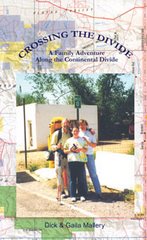
Exposure to human food is bad for bears on several levels.
The Fresno Bee
Nothing can ruin a backpacking trip like losing your food to a hungry bear.Bad for the backpacker. Even worse for the bear.Curious, intelligent and relentless, bears would rather eat trail mix or beef jerky than gnaw on a berry bush. But once they develop a taste for high-calorie human food, getting them back on a normal diet is next to impossible. "Once wild bears become habituated to human food, they cease to become wild bears," said Rob Mason, a Sierra National Forest wilderness manager. "And as they become habituated, they get more comfortable around people, which isn't good for us or them."
Decades ago, Sierra backpackers slept with their food to keep bears away. Not only did this method prove ineffective, it was also dangerous.
Then backpackers began hanging their food over a tree branch and tying the rope to a trunk. Once bears learned how to slash the rope with their claws, folks started employing a counter-balance technique in which no rope is tied to the trunk. While more effective, this method wasn't infallible. Bears eventually figured out how to bite through branches, shake tree trunks and even leap onto food bags from above.
"There have been documented incidents in Yosemite of bears doing a kamikaze-like jump onto the food from other branches and taking the pain from the fall because the reward is so significant," Mason said.
By the mid-1990s, wilderness officials began promoting the use of hard-sided portable containers See through Canister capable of fitting inside a backpack and storing several days worth of food. Try as they might, bears cannot break into these canisters if they are properly closed and secured.
Today, bear-proof canisters are required for all backpacking trips in Yosemite and in the popular Rae Lakes, Dusy Basin and Rock Creek areas of Sequoia and Kings Canyon. They even have small solo canisters available. They are "strongly recommended" for the rest of the park and also in the neighboring Sierra, Sequoia and Inyo national forests.
By next summer, canisters may be required throughout Sequoia and Kings Canyon, according to park wildlife ecologist Harold Werner. Canisters are widely available. Canisters come in variety of shapes, sizes and colors.
"Almost every bear incident we have in the backcountry involves food storage," Werner said.
Before they are approved for use, canisters are tested for ruggedness and durability on zoo bears and wild bears. A list of approved models can be found at the Sierra Interagency Black Bear Group's Web site, http://www.sierrawildbear.gov/.
Backpackers should use canisters to store not only food but also scented items such as sunscreen and toothpaste. They should be placed at least 100 feet from your campsite and away from water and cliffs.
"Bears are a curious and very intelligent species," Mason said. "Often what they'll do is wander into camp and knock over the canister because they know they can get to the food if the lid is off. If all else fails sleep with your food and the safety off on your bear spray.
"But if the lid is properly tightened, the bear usually will leave. Some bears don't even mess with them anymore."
Canisters can be purchased locally at sporting goods stores such as Herb Bauer and REI. Rentals are available at most frontcountry ranger stations.
The Fresno Bee
Nothing can ruin a backpacking trip like losing your food to a hungry bear.Bad for the backpacker. Even worse for the bear.Curious, intelligent and relentless, bears would rather eat trail mix or beef jerky than gnaw on a berry bush. But once they develop a taste for high-calorie human food, getting them back on a normal diet is next to impossible. "Once wild bears become habituated to human food, they cease to become wild bears," said Rob Mason, a Sierra National Forest wilderness manager. "And as they become habituated, they get more comfortable around people, which isn't good for us or them."
Decades ago, Sierra backpackers slept with their food to keep bears away. Not only did this method prove ineffective, it was also dangerous.
Then backpackers began hanging their food over a tree branch and tying the rope to a trunk. Once bears learned how to slash the rope with their claws, folks started employing a counter-balance technique in which no rope is tied to the trunk. While more effective, this method wasn't infallible. Bears eventually figured out how to bite through branches, shake tree trunks and even leap onto food bags from above.
"There have been documented incidents in Yosemite of bears doing a kamikaze-like jump onto the food from other branches and taking the pain from the fall because the reward is so significant," Mason said.
By the mid-1990s, wilderness officials began promoting the use of hard-sided portable containers See through Canister capable of fitting inside a backpack and storing several days worth of food. Try as they might, bears cannot break into these canisters if they are properly closed and secured.
Today, bear-proof canisters are required for all backpacking trips in Yosemite and in the popular Rae Lakes, Dusy Basin and Rock Creek areas of Sequoia and Kings Canyon. They even have small solo canisters available. They are "strongly recommended" for the rest of the park and also in the neighboring Sierra, Sequoia and Inyo national forests.
By next summer, canisters may be required throughout Sequoia and Kings Canyon, according to park wildlife ecologist Harold Werner. Canisters are widely available. Canisters come in variety of shapes, sizes and colors.
"Almost every bear incident we have in the backcountry involves food storage," Werner said.
Before they are approved for use, canisters are tested for ruggedness and durability on zoo bears and wild bears. A list of approved models can be found at the Sierra Interagency Black Bear Group's Web site, http://www.sierrawildbear.gov/.
Backpackers should use canisters to store not only food but also scented items such as sunscreen and toothpaste. They should be placed at least 100 feet from your campsite and away from water and cliffs.
"Bears are a curious and very intelligent species," Mason said. "Often what they'll do is wander into camp and knock over the canister because they know they can get to the food if the lid is off. If all else fails sleep with your food and the safety off on your bear spray.
"But if the lid is properly tightened, the bear usually will leave. Some bears don't even mess with them anymore."
Canisters can be purchased locally at sporting goods stores such as Herb Bauer and REI. Rentals are available at most frontcountry ranger stations.









No comments:
Post a Comment